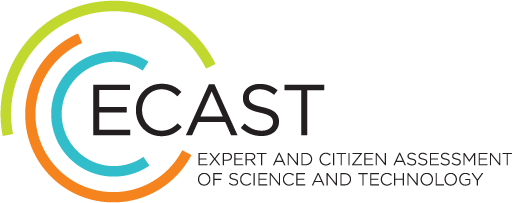Thank you [insert_php] global $ECASTdisplayname; echo $ECASTdisplayname; [/insert_php]!
ECAST and NASA greatly appreciate the time and thoughtfulness you have contributed to this program.
There is just one last survey that we ask you to complete. After you have made your last comments in the online deliberation forum, please complete our [insert_php]
global $current_user_pid;
echo ‘Post-Survey‘;
[/insert_php], at your earliest convenience, while the event is still fresh in your mind.
If you have not yet completed the [insert_php]
global $current_user_pid;
echo ‘Pre-Survey‘;
[/insert_php], please do so as well.
Those who complete the surveys and participate in the online deliberation will receive a unique certificate of recognition from NASA and ECAST.
Why this forum?
In its history, the Earth has been repeatedly struck by asteroids, large chunks of rock from space that can cause considerable damage in a collision. NASA, the US government’s space agency, wants to know what the public thinks about how it is accomplishing the Asteroid Grand Challenge and the Asteroid Redirect Mission, what inspires them about exploration, and what they think is valuable in the mission to find, capture, move and explore an asteroid.
- Can we – or should we – try to protect Earth from potentially hazardous impacts?
- How about harvesting asteroids for potential economic benefits?
- What do we do if we find an asteroid that threatens Earth?
Why should you participate?
This week-long (November 10-14) forum is NOT intended for Rocket Scientists. If you are a US citizen aged 18 and above and interested in sharing your views about asteroids and space exploration with your fellow citizens and NASA, you are a perfect candidate. No prior knowledge is required—we provide the background and questions; you share your thoughts, opinions and reflections. There are no correct answers—every viewpoint is welcome and wanted.
When and Where?
ECAST is working with Intellitics, a digital engagement firm based in San José, CA, to run the online deliberation. We will be using Zilino, a web-based solution for hosting online citizens forums such as this one. The conversation will start Monday morning, November 10.
How does it work, and how long will it take?
On each of three days, a new issue will be introduced, and you will be asked to read background information, and discuss questions with other online participants. The Zilino online forum is private, meaning only registered participants and a select group of facilitators and observers will have access to the conversation. You are free to only share the level of personal information that you are comfortable with. We estimate that each issue will take about 60-90 minutes to review and respond to. You may spend as long as you like on an issue, and we encourage you to engage in good discussions with other participants. On Friday, November 14, there will be a final wrap-up discussion where you will respond to some general questions, after which you will be asked to complete a final survey.
The issues, materials, and questions that you’ll work with online are the same ones that the in-person forums will address in Phoenix on November 8, and in Boston on November 15. NASA wanted to be sure that all citizens have an opportunity to consider the issues and contribute their thoughts to these important questions.
What if I can’t spend that much time?
We understand! We ask that those who begin the online forum make every attempt to complete all of the materials and answer all the questions. If you know that you won’t be able to commit that much time, we invite you to take part in the next phase of the forum, described in the next section.
What happens next?
After the live forums in Phoenix and Boston, and the online forum are completed on November 15, ECAST will very quickly compile and summarize the key results from the deliberations. We will post these key results online, and invite everyone—whether or not you have registered or participated in the online or live forums—to consider and respond to the results.
If you are registered and have provided us with an email address, we will contact you next spring after the complete results have been compiled, analyzed, and interpreted in a final report to NASA, which we will post on our web site.
What is Informing NASA Asteroid Initiative: A Citizen Forum?
NASA awarded the Expert and Citizen Assessment of Science and Technology (ECAST) a cooperative agreement to hold forums to engage everyday citizens in active dialogue about NASA’s Asteroid Initiative.
Learn more on the NASA web site
What is ECAST?
ECAST is a network of different institutions that combines the research strengths of universities like Arizona State University with the skills of nonpartisan policy research organizations and the education and outreach capabilities of science museums and citizen science programs.
Visit the ECAST web site
If you have questions about the process, please Contact Us.
